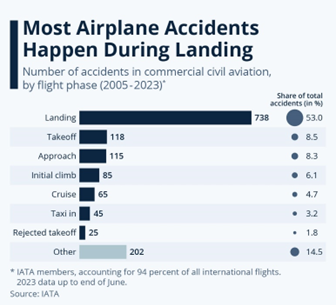TAG: GS 2: INTERNATIONAL RELATIONS
THE CONTEXT: The Financial Action Task Force (FATF), a global watchdog for money laundering and terrorist financing, has conducted a survey on the implementation of its standards regarding virtual assets (crypto assets) and virtual asset service providers (VASPs).
EXPLANATION:
- Despite the FATF’s efforts to strengthen regulations through a road map agreed upon in February 2023, many countries have yet to fully implement these requirements.
Definition and Scope of Virtual Assets
- Virtual assets encompass any digital representation of value that can be digitally traded, transferred, or used for payment.
- The FATF’s focus on regulating virtual assets and VASPs is aimed at preventing their misuse for illicit financial activities such as money laundering and terrorist financing.
Status of Implementation
- The study, involving 58 jurisdictions, reveals varying levels of implementation across countries.
- While some countries like India have conducted risk assessments and taken regulatory measures, others are still in the process of prohibiting the use of virtual assets and VASPs.
India’s Compliance and Actions
- India, a member country of FATF, has taken several steps to address the risks associated with virtual assets and VASPs.
- It has conducted risk assessments, enacted legislation, and applied Anti-money Laundering/Counter-terrorism Financing measures.
- India has also conducted supervisory inspections, taken enforcement actions against VASPs, and enacted the travel rule for VASPs.
Concerns and Global Implications
- The FATF emphasizes the international and borderless nature of virtual assets, highlighting the need for effective regulation across jurisdictions.
- Failure to regulate VASPs in one jurisdiction could have significant global implications, as evidenced by recent reports of illicit activities involving virtual assets.
- Instances include the laundering of funds for the proliferation of weapons of mass destruction by the Democratic People’s Republic of Korea (DPRK) and the use of virtual assets by terrorist groups such as ISIL and Al Qaeda.
Importance of Regulatory Framework
- Given the increasing misuse of virtual assets for illicit purposes, the FATF stresses the importance of robust regulatory frameworks.
- Ransomware incidents, terrorist financing, and other illicit activities underscore the urgency of implementing and enforcing effective regulations to mitigate risks associated with virtual assets.
Financial Action Task Force (FATF):
- The Financial Action Task Force (FATF) was established in 1989 by the G7 to examine and develop measures to combat money laundering.
- It originally included the G7 countries, the European Commission and eight other countries.
- Initially it was mandated to examine and develop measures to combat money laundering and in 2001, the FATF expanded its mandate to also combat terrorist financing.
- FATF mutual evaluations are in-depth country reports analysing the implementation and effectiveness of measures to combat money laundering and terrorist financing.
- The Financial Action Task Force (FATF) is commonly referred to as the world’s “terrorism financing watchdog”, which means it is the author — and custodian — of an international regime that works to ensure that the flows of money in the global financial system are not misused to fund terrorist activities.
- FATF maintains a “grey list” of countries that it watches closely. In essence, these are countries that have, in the assessment of the FATF, failed to prevent international money laundering and terrorist financing, and are, therefore, on a global watchlist for bad behaviour.
- Pakistan was the most important country on the list. After it (along with Nicaragua) was taken off the list, 23 countries remain under watch.
- Among these countries are the Philippines, Syria, Yemen, the United Arab Emirates, Uganda, Morocco, Jamaica, Cambodia, Burkina Faso, and South Sudan, and the tax havens of Barbados, Cayman Islands, and Panama.
What are countries on the grey list expected to do?
- FATF calls these countries “jurisdictions under increased monitoring”. Basically, these countries have to comply with certain conditions laid down by the FATF, failing which they run the risk of being “black listed” by the watchdog. Their compliance is periodically reviewed by the FATF.
- According to the FATF, when a jurisdiction is placed under increased monitoring, “it means the country has committed to resolve swiftly the identified strategic deficiencies within agreed timeframes and is subject to extra checks”.
- Specifically, these jurisdictions are now “actively working with the FATF to address strategic deficiencies in their regimes to counter money laundering, terrorist financing, and proliferation financing”.


